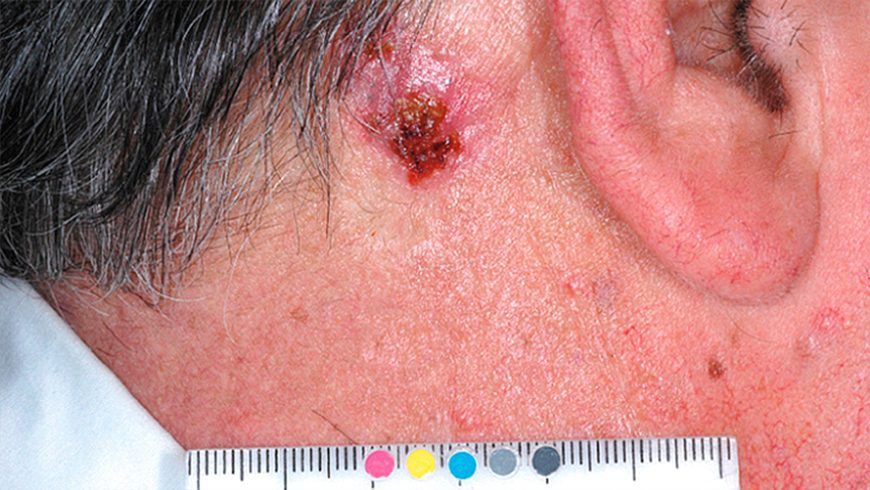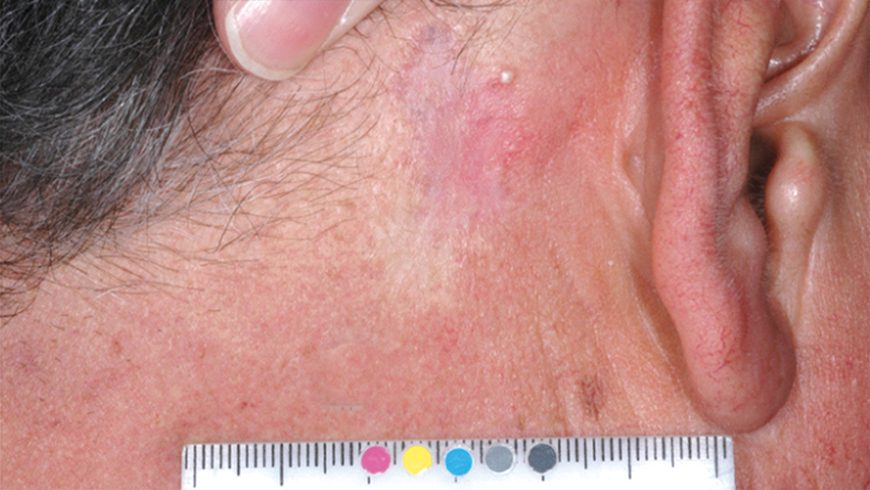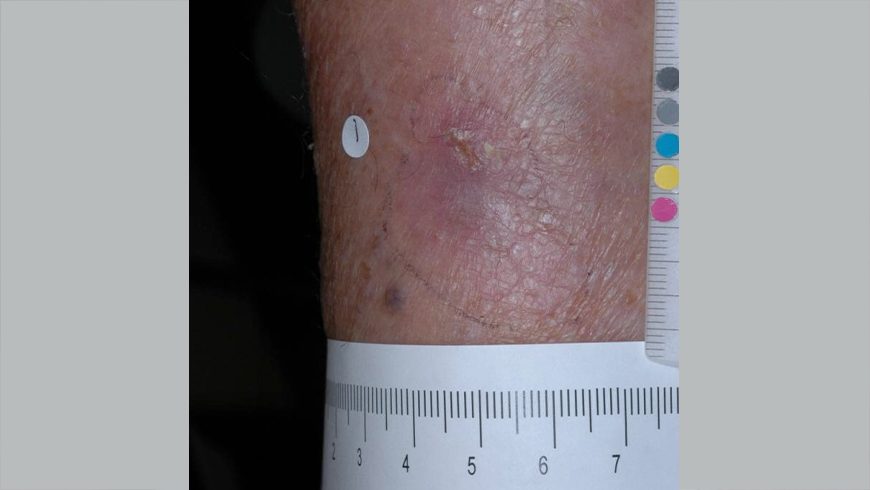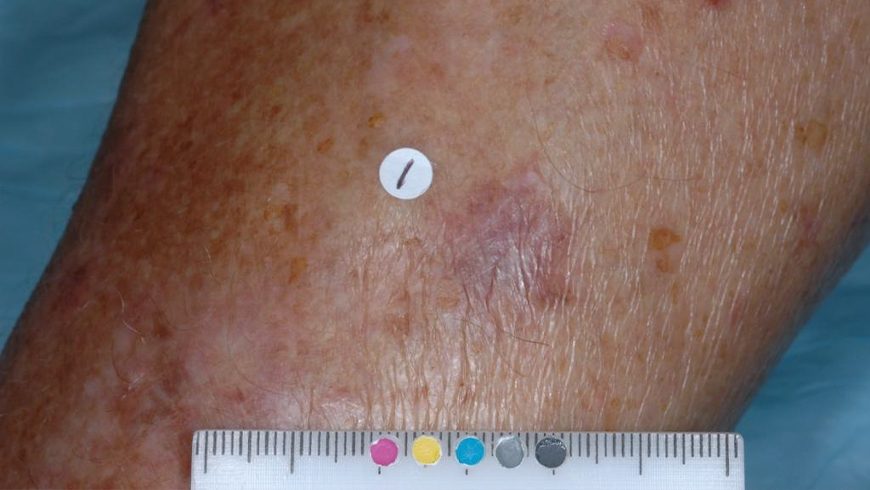Meet Matt and Marsha, 2 patients from the Erivedge clinical study
Matt’s Treatment Journey
Matt was diagnosed with locally advanced basal cell carcinoma behind his ear. Learn about his experience and results with Erivedge.
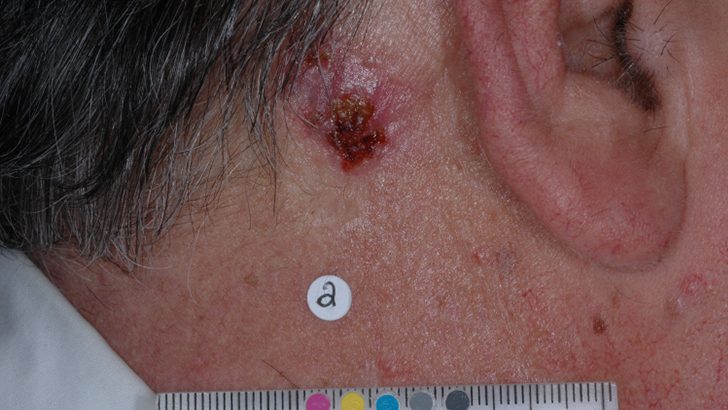
Marsha’s Treatment Journey
Marsha was diagnosed with locally advanced basal cell carcinoma on the mid-shin of her left leg. Learn about her experience and results with Erivedge.
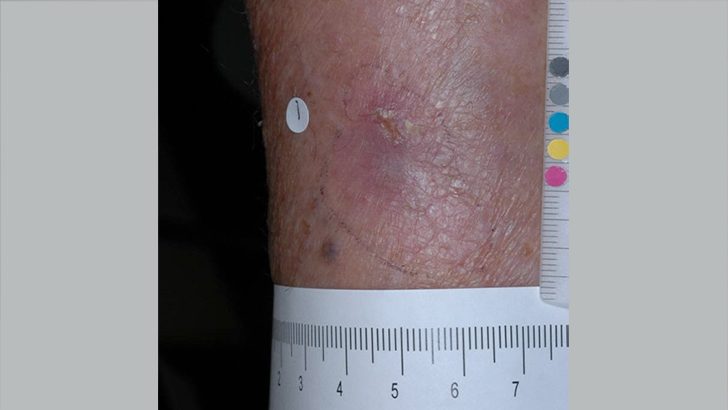
Matt, age 54
Locally advanced basal cell carcinoma behind his ear
Matt’s history of basal cell carcinoma
- He was first diagnosed with basal cell carcinoma in 1987
What made Matt eligible for Erivedge?
He was not a candidate for surgery or radiation therapy
Matt’s treatment journey with Erivedge
He started treatment with Erivedge in February 2010 and was treated for 9.6 months
In the Erivedge clinical study, the median duration of treatment was 10.2 months (range, 0.7 to 18.7 months)
- He continued on treatment as of the data cutoff in November 2010
How effective was Erivedge for Matt?
He experienced a complete response, which means he had no evidence of basal cell carcinoma at Week 24 of treatment
What side effects did Matt experience?
He experienced hair loss, a change in how things taste, muscle spasms, nausea, and weight loss
Photos are from a real patient. Patient may have had other lesions besides the one shown here. Individual results may vary.
Descriptions are based on study investigator assessments. Case studies show results of treatment in specific patients. These cases are for general informational purposes only and are not intended to replace medical advice or your doctor’s medical judgment when it comes to your treatment. Although not shown here, patients with metastatic basal cell carcinoma also participated in the Erivedge clinical study.
Marsha, age 75
Locally advanced basal cell carcinoma on the mid-shin of her left leg
Marsha’s history of basal cell carcinoma
She was first diagnosed with basal cell carcinoma in 1990
What made Marsha eligible for Erivedge?
She was not a candidate for surgery or radiation therapy
Marsha’s treatment journey with Erivedge
She started treatment with Erivedge in November 2009 and was treated for 12.5 months
In the Erivedge clinical study, the median duration of treatment was 10.2 months (range, 0.7 to 18.7 months)
- She continued on treatment as of the data cutoff in November 2010
What were Marsha’s results with Erivedge?
She experienced a non-response, which means she still had evidence of basal cell carcinoma at Week 24 of treatment
What side effects did Marsha experience?
She experienced a decrease in appetite, reduced sense of taste, muscle spasms, and weight loss
Photos are from a real patient. Individual results may vary.
Descriptions are based on study investigator assessments. Case studies show results of treatment in specific patients. These cases are for general informational purposes only and are not intended to replace medical advice or your doctor’s medical judgment when it comes to your treatment. Although not shown here, patients with metastatic basal cell carcinoma also participated in the Erivedge clinical study.
